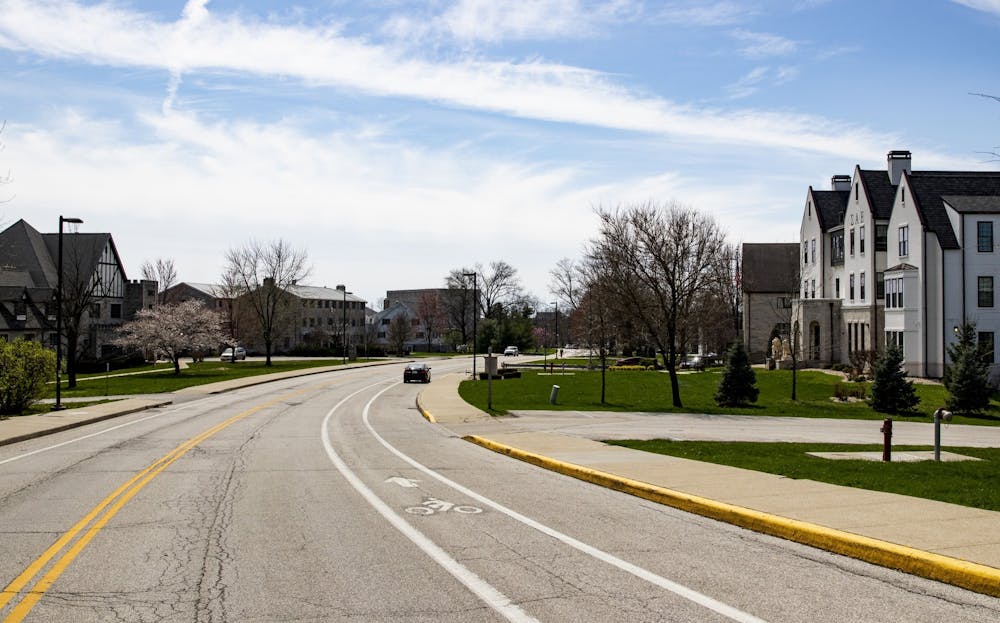The Monroe County Health Board said in a Tuesday meeting it will begin to take action against IU greek housesnot in compliance with maximum capacity regulations.
The Health Department regulated a 75% maximum occupancy rate Aug. 28 for communal living homes. That went into effect after classes had already begun at IU.
Yet nearly three weeks later, 16 houses are still not in compliance, said Celinda Leach, chair of Monroe County Health Board of Directors.
Leach said she knows there is a house currently at 95% capacity. In a message to members and parents of Alpha Gamma Delta acquired by the Indiana Daily Student, the chapter reported 89% capacity.
The board passed a motion to have IU report report if a greek house doesn't comply with any regulation to the health department.
Additionally, the board said it knows of 21 houses below the 75% capacity. The board also said not every house has consistently reported data about capacity.
Mike Norrell and other members of the board expressed concern over the board failing to strongly enforce the Aug. 28 regulation, especially as it knows of situations where there is non-compliance.
“It’s time to take some steps and be a little more aggressive with houses that have not been compliant,” said Margie Rice, Monroe County legal counsel and board member.
Rice said she wants each house currently above the threshold to work with the board to reduce capacity. Multiple greek house representatives have told the IDS since IU’s recommendation to close greek houses that there is nowhere for their students to go should they be forced to leave.
Monroe County, not IU, has the authority to make students leave the houses. The board did not indicate it has plans to close houses entirely, however it also did not say it would never close houses.
Rice and the rest of the board said it is aware multiple houses are actively working to get below the 75% cap, but it also knows of some that are not trying. Most houses are not letting students break leases. Rice said she understands the financial implications of cutting down housing capacity, but said the public health considerations are just as important.
Additionally, the board said it is aware most houses are treating quarantines differently from each other in terms of how strictly they are followed.
If houses continue to not follow the regulations, Rice said she would consider taking the matter to court.
Greek house representatives stated concerns over cutting capacity because of the financial impacts.
“Financially, that’s just not feasible for us,” Diane Moeller of Alpha Delta Pi said during the meeting in reference to a possible cut to 50% capacity. “It would devastate us.”
For now, the capacity maximum is still 75%. The board did discuss lowering that when students return for the spring semester. Dr. Aaron Carroll, IU’s director of mitigation testing, said he plans to conduct on-arrival testing again when students return in the spring.
The board also passed a motion to allow two students to sleep in a bunk bed in a single room. Previously in communal living facilities such as greek houses, only one student was allowed in a bunk bed but that policy was not being closely followed.
For some houses, having two students in a bunk bed is the only way to keep its members in the house. Kary Huffman, Alpha Phi House Corporation Board president, said during the meeting 24 rooms in the house had bunk beds.
Moeller said at the meeting the house has rooms meant for five people living in them. She added many rooms have multiple people living in them. The board said it will work with houses in situations like Moeller described to meet regulations.
Leslie Fasone, IU’s assistant dean for sorority and fraternity life, said she knows of houses that are still using cold dorms — large rooms with many bunk beds in them.
The board said it will not regulate against dorm style living in communal houses, but does not endorse it. It is requesting one bunk bed per room.
The Board plans to meet again Oct. 6 to review how successful communal houses have been in limiting COVID-19 cases with the new bunk bed policy as well as cutting down capacity.




